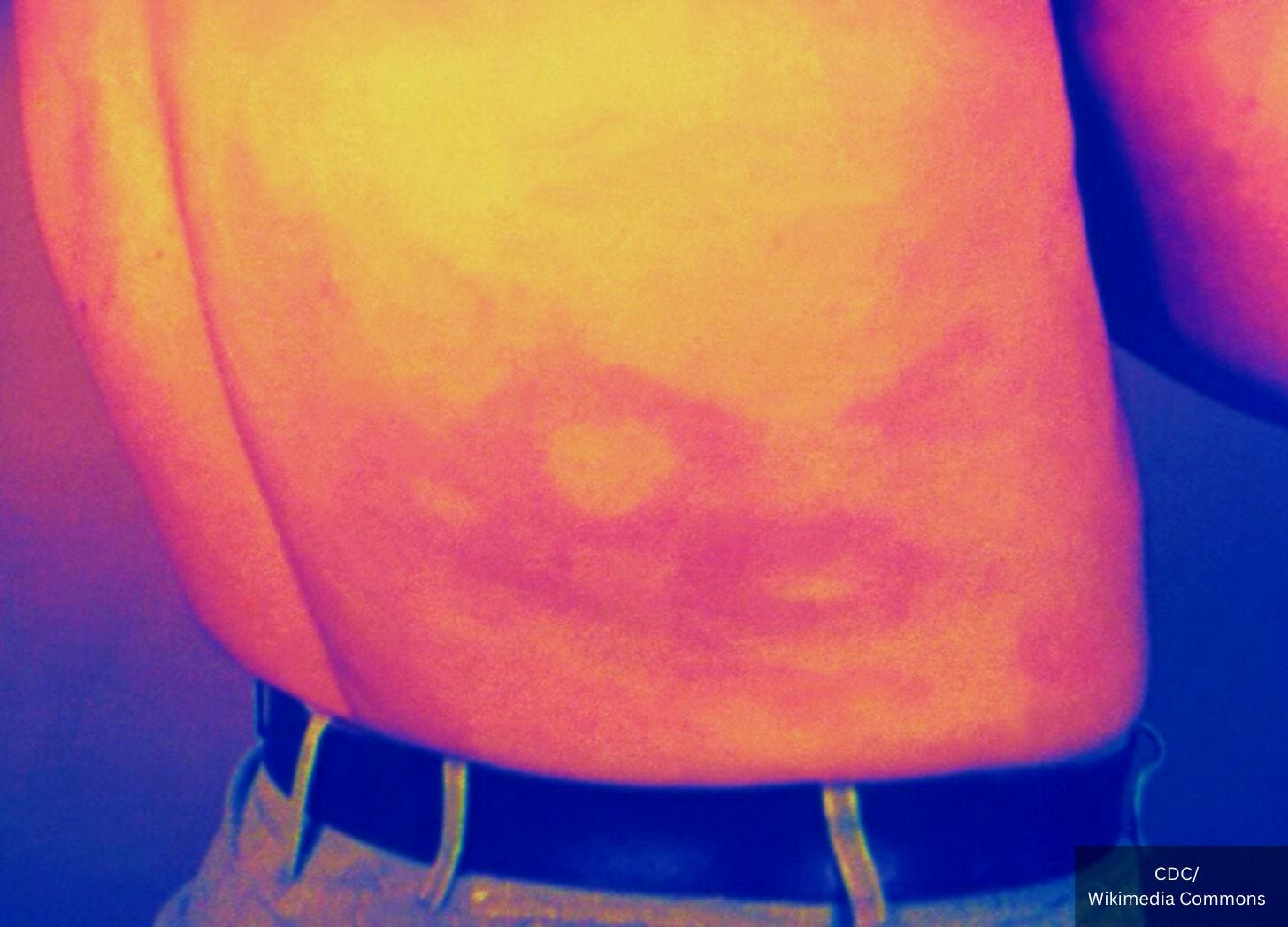Leprosy Now 'Endemic' in Florida After Multiple Studies Link Disease to COVID-19 Vaccines
New cases show "no clear evidence" of animal exposure or other "known transmission routes," according to the CDC.
As of August, the U.S. Centers for Disease Control and Prevention (CDC) is warning citizens of rising case reports of leprosy in Central Florida.
“Florida, USA, has witnessed an increased incidence of leprosy cases,” the agency announced.
The ordeal demonstrates “rising evidence that leprosy has become endemic in the southeastern United States. Travel to Florida should be considered when conducting leprosy contact tracing in any state.”
Leprosy, or Hansen’s disease, “is a chronic infectious disease caused by the acid-fast rod Mycobacterium leprae,” the CDC explains, primarily affecting the skin and peripheral nervous system.
Leprosy Historically Uncommon in U.S.
Historically, leprosy has been uncommon in the United States, with incidence peaking around 1983.
The annual number of documented cases reduced dramatically from the 1980s through 2000.
However, “since then, reports demonstrate a gradual increase in the incidence of leprosy in the United States,” the CDC confirms. “The number of reported cases has more than doubled in the southeastern states over the last decade.”
One hundred and fifty-nine (159) new cases were reported in the U.S. in 2020, with Florida being among the top reporting states, raising questions about the reason for the increase.
Three Medical Publications Link Leprosy to COVID-19 Vaccine
Incidentally, the sharp rise in leprosy cases coincides with the introduction of mRNA COVID-19 vaccines being introduced to the public.
In fact, a November 2021 publication in The Journal of the American Academy of Dermatology (JAAD) linked one patient’s leprosy symptoms to a COVID vaccine he received 10 to 15 days prior.
“[H]is reaction was likely unmasked by the COVID-19 vaccine,” the case report authors write.
Moreover, authors of a June 2022 publication in The Journal of the European Academy of Dermatology and Venereology reported “a series of four cases of Hansen’s disease with leprosy reactions spanning across the entire spectrum after being administered the [COVID] vaccine from a leprosy care centre in India.”
“The duration between the administration of the vaccine and the onset of leprosy reactions ranged from 5 to 11 days,” the authors note.
More recently, an August 2023 publication in PLOS Neglected Tropical Diseases confirmed the “theoretical risk” of coronavirus vaccines “triggering a leprosy reaction.”
The study found that “a very high” 96% of individuals with leprosy who attended the Leprosy Clinic at the Hospital for Tropical Diseases, London in 2021 had received a COVID vaccine.
“The onset of reported leprosy adverse events were 5–14 days following a SARS-CoV-2 vaccine,” the researchers write.
Florida Leprosy Cases Not Attributed to “Traditional” Causes
Lending to the possibility that the COVID vaccines are to blame, the rise in leprosy cases in Florida lacks “traditional risk factors,” according to the CDC.
This means the new cases show “no clear evidence” of animal exposure or other “known transmission routes.”
Contact tracing—the process of identifying, assessing, and managing people who have been exposed to a contagious disease—was performed by the National Hansen’s Disease Program, but “revealed no associated risk factors, including travel, zoonotic exposure, occupational association, or personal contacts.”
Not Due to Immigration, Either
It’s possible that the increase in leprosy cases could be due to immigration or travel, foreign nationals infected with the disease entering the US.
However, the CDC announcement cites studies confirming that many cases reported in the eastern United States lacked “recent residence outside of the United States.”
In fact, the rates of new leprosy “diagnoses in persons born outside of the United States has been declining since 2002,” the agency writes, necessitating a different origin, like COVID vaccines.




